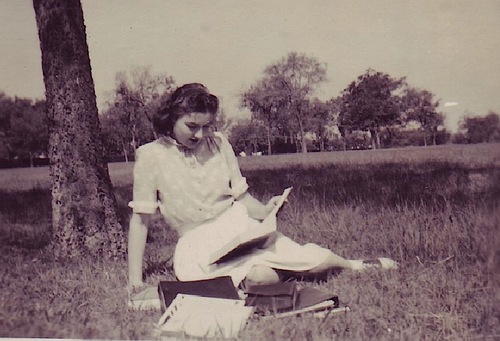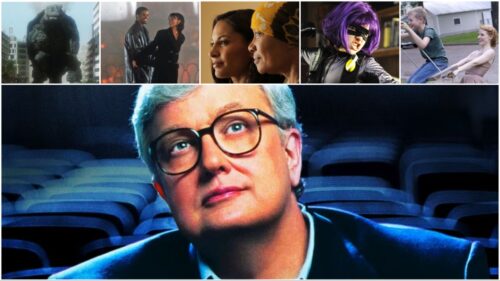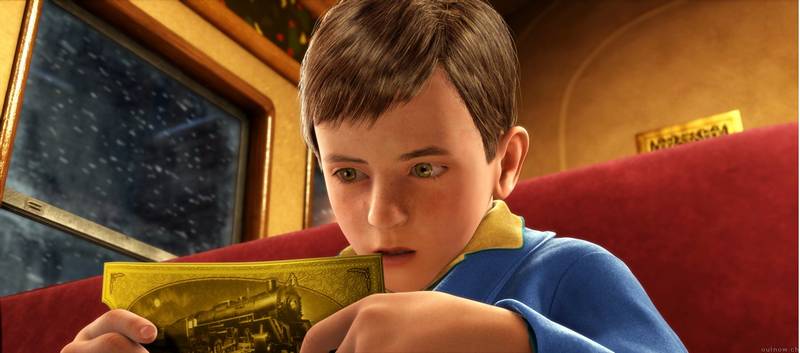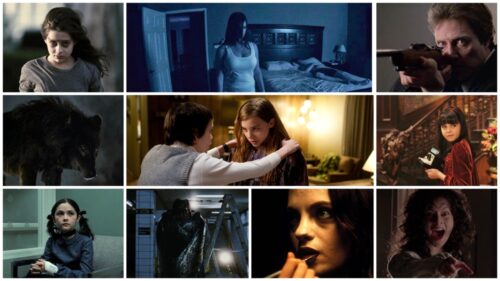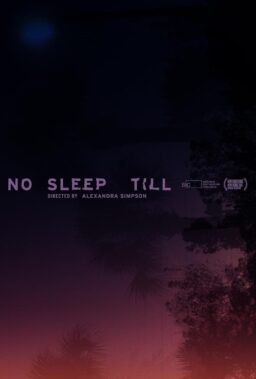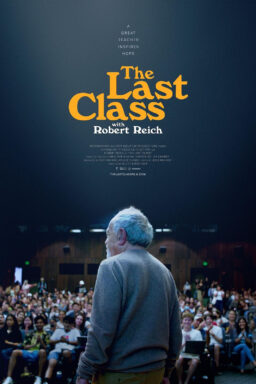After she had the heart attack out in Michigan on Thanksgiving 1988, I stood by her bedside in the recovery room and she tried so hard to tell me something, but it just didn’t work. I loved her so much. Did she know how much? I never told her. There are always questions you wish you’d asked after it’s too late to get an answer. Sometimes years can pass before you realize they’re questions.
Everyone said I “took after her,” and I did. My features are more rounded than anyone else on either side of my family. Martha R. Stumm was the youngest of six surviving children of a Dutch-Irish-German couple who raised their family on a farm outside Tayorville, Illinois. Years after after her father died and her mother opened a boarding house in Urbana, enough oil was found beneath the land to make it worth drilling.
I visited the farm in the 1960s with my mom and dad, Aunt Martha, and Cousin Bernardine from Stonington. It was a two-story frame house on a smallish footprint. Wallpaper was still hanging from the walls. They remembered their pony that lived in the barn, and they followed the path they ran on barefoot down to the river. Their dad was not only a farmer but ran a billiard parlor in Taylorville, and took out witty wisecracks in the classified section of the local paper.
I don’t have all the years straight in my mind, but I know they lost the farm in the Depression, right before or after my grandfather died. My grandmother, Anna B. Stumm, made the move to Urbana and started the student board ing house to be sure her children would get a chance at university degrees. I recall Grandma as a pleasant old lady who got along with everybody. I never saw the sturdy determination she must have needed as a bankrupt single parent with six kids, setting down roots on a long shot during hard times.
Mary’s handwriting: “Us kids.” Martha’s siblings before she was born.

My Uncle Everett graduated from the University of Illinois, and eventually became vice president of a building supplies company near Chicago. Once he took me down into one of his gravel pits, with its awesome walls and enormous equipment. My Uncle Bill graduated from the College of Agriculture, and became an ag teacher first in Elkhart, Indiana, and then in Elkhart, Illinois. Once at the State Fair he showed me the pen at the fair holding some of his classes’ prize cows, and the cots he and his students slept on overnight. Everett was the only Republican in the family, which caused not rancor but amusement at family dinners.
Bill, a lifelong bachelor, gave me Huckleberry Finn when everyone thought I was too young to read it, but I wasn’t. He gave me books every Christmas and birthday. Every time there was a family gathering at Grandma’s house, it was understood that time would be set aside “for Bill and Roger to have one of their talks.” When he was around 90, Bill became angry at Martha and our family friends Dave and Dot Sparrow because they wouldn’t allow him to ride a mule to the bottom of the Grand Canyon, “Hell’s bells,” he said, “At my age, if anything happens, the mule has more to lose.” He did all of the cooking for family gatherings, even for Martha’s last Thanksgiving, although she loved her apron that said, This is the kitchen of Martha R. Stumm. If you doubt it, start something.”

My third uncle, Bob, also spent his life at the University, mostly as a janitor at the Library. He wasn’t as bright as the others. He was in charge of killing and plucking turkeys, capons and chickens in the garage, or of setting up and supervising the ice cream machine, and maintaining the house, where he lived in a cold enclosed front porch. For most of the years I remember, Martha’s friend Jean also lived with them. Bob smoked Luckies and when I asked why the chickens ran around with their heads chopped off, he said, “That’s to make little boys like you ask questions.” When I started a stamp collection, he sorted through the library’s discarded mail for foreign stamps, which he would give me one at a time. This continued for some years after I stopped collecting stamps. When I mentioned that to my mother, she said, “Honey, that means so much to Bob. Don’t ever say anything.”
Girls didn’t often go to college in those days. I believe high schools in the 1930s in a town like Champaign-Urbana produced graduates that were better-educated and more literate than a great many of today’s college students. My Aunt Mary, whose recipes are cited in my book The Pot and How to Use It, married John O’Neill, a dashing state trooper who later became Champaign Postmaster. He, like my parents and everyone except Everett, was a diehard Democrat. That he was able to win a clout-controlled job like postmaster, in a district that was long Republican and still is, says a good deal about the fact that “everybody loves Johnny.” He and Mary were childless, and lived in a series of homes they would “improve” and resell every two or three years. They ended up with half a floor of a condo with an actual elevator, overlooking the park at the end of the street where Ebertfest is held.
John, Martha, and my football

They were “in with those Champaign society people.” They were even members of the Champaign Country Club. There was nothing snobbish about them. They were always laughing. He smoked Camels and Mary smoked Pall Malls. Why do I mention their brands? I have never smoked, but all of my life I’ve remembered the smokes people use. It must be a mental quirk. How clearly I recall a day when my mother and I had just pulled up in Grandma’s driveway and Mary walked over to chat through my window and was holding a cigarette that was the longest cigarette I had ever seen. Why does that memory still appear uninvited in my mind? A quirky pre-sexual tremor run through my young body. Why?
I have a lot of mental snapshots that pop up. They usually aren’t significant and are unrelated to what’s going on at the time: Jackie Yates and me occupying the entire floor of our dining room with a construction-paper village to go with my Lionel Train Set. Bitter tears of resentment when it had to be torn down when we had company for dinner. You’d think it was Venice. Slowly letting the first cold drops of a Grapette trickle down my throat while sitting on my bike leaning against the porch of Harry Rusk’s grocery store. A girl named Vicki walking past me in a hallway at Urbana High and deliberately allowing her breasts to brush pop! pop! across my arm. A disloyal thought, quickly dismissed in shame, when Vicki said she’d “see me” at the Tiger’s Den on Friday night, and I realized I’d be attending Grandmother’s wake.
Daddy observed that John had put Mary to lifelong labor “redecorating” houses he could sell at a profit. “Mary loves it,” my mom said. “She loves to shop. If Johnny didn’t give her a new house every two years, she’d go crazy.” I remember seeing a Rose Bowl game after she bought a TV set. We listened to the radio while John fiddled with rabbit ears to pull in a signal from Peoria. At a time when Champaign-Urbana lacked a TV station, Mary had purchased the TV because “everybody has them in Better Homes and Gardens.” Their house at that early point after Johnny’s purchase was still mostly unfurnished, and most of the guests sat on folding chairs while I squatted on the floor in front of the set, squinting at distant ghostly images that Marc Howard or Larry Stewart on WDWS would say represented another great run by J. C. Caroline.
Aunt Martha and me in my house on Fullerton.

My mother attended the secretarial college on Green Street and studied bookkeeping. She became assistant manager of the Allied Finance Company, upstairs over the Champaign County Bank and Trust. “People get their loans turned down by the bank,” the owner, Mr. R. V. Willis explained,” and they only have to climb up one flight of stairs to find us.” Loans were $25 to $500. My mother and another employee were sometimes sent out to repossess cars that were “behind.” Their big day was New Year’s, when the books always had to be perfectly in balance. Then Mr. Willis would take his employees and their families two doors down to Mel Root’s, where Mr. Willis would tell my dad, “Have yourself a steak, Wally,” and he’d say, “I sure will!” I always ordered french fried shrimp that came in a Shrimp Basket with a side of “cold slaw.”
My Aunt Martha went to the nursing school of Mercy Hospital, in Urbana, and became a registered nurse. She had a white nursing hat she wore on the job which made her look ready for action. She worked for years for Dr. Edmond Collins, a dental surgeon at Christie Clinic. The pain of having my teeth drilled was less for me because Doctor Collins and I were serious Tarzan fans. “They have a town named Tarzana in California,” he informed me. He was a kindly man with a dry, sarcastic voice, and he and Martha got along famously. “Roger gives me someone to talk with about Tarzan,” he told Martha. After the original book, our favorites were Tarzan and the Ant Men and Tarzan and the Golden Lion. On one of my birthdays he blew me away by giving me Tarzan at the Earth’s Core, which introduced me to Burrough’s land of Pellucidar. Years later, after his retirement to California, he’d write me from time to time. He still loved Tarzan. Writing after Martha died, he said he would have come to the funeral but be couldn’t travel anymore. “I never met another nurse quite like her,” he said.
Some dates grow unclear. Martha and Jean Sabo met in nursing school. Martha was engaged to a local boy, whose name I think was Willis Hartrick, who went away in the Navy and died when his ship was struck by Japanese torpedoes and went down in sharky waters. After the war, she dated a man named Rex Smith, I think, who would pick her up for their square dancing club wearing cowboy duds. His thick black hair was neatly parted and cemented into place with Brilliantine.
Jean Sabo was an Army nurse, assigned to a hospital train in Europe. I took the map of Europe out of one of our National Geographic magazines, and she used a Crayola to trace her train’s journeys. Bill was then stationed with the Army in Casablanca. Jean moved back to town and at some point in the 1950s and took an apartment. After Grandma’s children bought the new house at 807 W. Clark for her, she moved in. That house was always known as “home.” My Mom would tell Daddy: “I’m going over home.” Jean and Martha lived together for the rest of Martha’s life. Bob’s emphysema grew worse and spent the rest of his days in the Champaign County Nursing Home. Every time we visited him there, in his spartan room with an ignored roommate, my mother would say, “That’s where I’ll end up. The County Home.” She never quite thought I had a real job. “And how is Roger?” her friends would ask. “Is he still just…going to the movies?”

Although they later became friendly, my mother was very disturbed by Jean’s moving in with Martha, Bob and Grandma. I overheard conversations after bedtime about “how much we’re helping Mom,” and how much that money was “helping Jean”–although registered nurses made good salaries, and Grandma now had two of them around the clock. Grandma simply accepted Jean. Bob would sit in his enclosed porch reading Popular Mechanics, in whose pages I paid close study to the stamp company offering FREE GOYA NUDE! The rest of the time Bob devoted such close supervision of television management that you’d think he was still trying to pull in Peoria. Before we finally got our own set, we would ritualistically gather in Grandma’s living room to watch I Love Lucy, Jackie Gleasonand Talk of the Town, with Ed Sullivan. Before the first show came on, Bob would supervise the watching of the test pattern. He never mentioned it, but I could tell Uncle Bob was quietly annoyed when people talked during the test pattern. In some sense, he was presenting television, not CBS. He’d bought it out of his own salary.
Grandma was recognized as the ultimate authority in the Clark house. Bob was the male in charge. Martha laid down the law and made the plans. As the youngest, she was used to getting her way. This included choosing the family friends. I cannot recall Uncle Bob ever having a single friend that I met. He was of few words. Perhaps he had lunch sometimes with another janitor.
Bill, Gene Walsh, me, Dot Sparrow, my mother, Dave Sparrow, Martha, Jean Sabo In my house on Fullerton

Martha and Jean were the world’s friends. Half a block east on Clark street, directly behind St. Patrick’s, a black family lived, and their mother, Jean and Martha were constantly dinner guests at one house or the other. There was Joanie Kim, a Korean-American nurse, Martha met at Christie Clinic. It was assumed she would be at Grandma’s table on Friday nights. In our kitchen she made Korean BBQ for us. Bob would get up and go to the fridge, where he found a bottle of American BBQ sauce to slather over it.
Another frequent guest was Florence Ebert, also a nurse at Christie, who drew my blood for the first time I can recall. She was the daughter of Herman Ebert, who was some sort of cousin of Daddy’s. Florence lived until 88, and I saw her once a year at Ebertfest, always on the arm of Katie Birch, a younger nurse. Martha and Jean also made a pal of Gene Walsh, a local woman who lived alone in an apartment across from the McKinley YMCA and always came along when we went out for dinner in Champaign-Urbana, or Michigan after my mother’s death. “Walsh,” as she was called, was picked up and delivered home in a big van piloted by Dave and Dot Sparrow. The Sparrows essentially made this van available as a transport vehicle for Martha and her friends.
Dave and Dot. “Have Dave build you a deck,” Martha advised me after I bought the house in New Buffalo. “Those people are true blue.” They’d met the Sparrows after moving to Wapella. They needed someone to add a sun porch to their housd, hired Dave, and got lifelong friends in the bargain. Dave and Dot now joined Fr. Brunskill at the table at all dinners I attended in Wapella, and inevitably many more.
Dave and Dot lived in nearby Kenney, Illinois (pop. 374), Dave was the Water Commissioner. There was a certain irony in the fact that when they wanted to add on a room and there was only one side of the house it would work on, it was positioned over their unused well. “You never know when you might need it again,” said the Water Commis=sioner, and built the floor over the old well, with a lid he could open in the new room’s rug. They had a lot of relatives near Kenney. Their enormous nearly square dining table was surrounded on Sundays by a circulating population of relatives, family, neighbors and friends. One relative was the chief of police, and Dave had a police band radio so the whole table could monitor the calls, which were not that many, and triggerdd a running commentary: That will be over by the time they get there…she’s having her baby…that kid isn’y old enough to have a license…
Martha and her sister, my mother, Annabel.

Dave was the high-tech version of Uncle Bob. He was the first person I knew who had one of those big satellite dishes with an electric motor to rotate it. He subscribed to a thick satellite TV guide and enjoyed in bringing in Tokyo and London. I’d come a long way from bringing in Peoria.
Dave and Dot adopted the family. His big van was used for trips to the Grand Canyon, and he ferried Martha, Jean and Bill to visit me in Chicago and Michigan. When they were living in my side cottage in Michigan, they drove up most weekends whether or not I was in residence, staying at a motel. I piled into the van with them and we visited the big antique mall in Niles and the Chinese buffet in Michigan City. I felt at home. After Martha died, they drove Uncle Bill and Walsh to visit me in Michigan, keeping the ritual alive. Dave and my best friend, bonded over computersMcHugh with the Tandy Model 100. These memories reflect the nature of ordinary life Downstate as I experienced it. What remarkable friendships they created after 60. What good people they were, and how well they demonstrated how easily people loved my Aunt Martha and Jean. And what was the nature of the friendship between Martha and Jean, which spanned more than 30 years?
Dave Sparrow

That’s one of the questions I never asked. For years, it was a question I didn’t know even existed. Alice Munro had a short story about two women presenting such a question. In my mind, I’ve answered this in an indirect way involving the way they were both serious Catholics, especially Jean. On Clark Street they were only a good block’s walk from the back door of St. Patrick’s on Main street, and would never miss a First Friday or a Holy Day of Obligation. I can’t be sure they ever worked it out for themselves. Possibly they discussed the details of their living arrangements with Grandma and their siblings, but I picture these talks as running along the lines of “It makes good sense.”
Here is a curious thing. I remember the house on Clark Street so clearly, right down to the smell of green onions in the basement. You entered through the enclosed porch, thick with the stale aroma of Uncle Bob’s Luckies, and into the dining room, where I clearly recall Bob helping me to walk while steadying myself on the business end of a fly-swatter he held. To the left off the dining room was the kitchen, where I remember being at the kitchen table on Martha’s lap, while Grandma and my mother supervised. She had one of my legs pinned between hers, and would lift a bite of food to my mouth and squeeze. The longer I delayed opening my mouth, the more she would squeeze. In later life, this training was to prove all too effective. My mouth popped open so readily that they had to to take away my ability to eat in order to undo it.
If you walked straight ahead through the dining room, you entered a family room, which was a later addition after they’d lived there a few years. In the distance, facing the front door, was Grandma’s Chair, so she could see who came in. There was a sofa and three or four other chairs. The television had been relocated in here, with Bob still supervising. This was where the Christmas tree was placed, with Martha, as the youngest sibling, sitting Indian-style on the floor and playing Santa. The dogs would have already sniffed out their presents. Now Martha would pass out the others after examination and predictions: “Bob’s cigarettes. Bill’s cigarettes. A book for Roger. Another book for Roger. From me to Jean. From Roger to Grandma…”

Off the dining room to the right was the former living room. It connected on the left to Grandma’s Room, which led to Martha’s Room. And that was the house. I ask myself, where did Jean sleep? It had to be in the old living room, connected to Grandma’s room. I cannot remember any bed ever being in that room. I don’t know where Jean slept.
There was a big picture window overlooking the back yard, with its garage and a vegetable garden behind it, and a swing hanging from a tree branch. This tree was a climbing tree with a perch perfect for sitting in the leaves by the hour, often in study of the GOYA NUDE.
One of the books I read circa 1950 was Dianetics, by L.Ron Hubbard. There were some family friends, the Mulligans, who lived not far away. Bob Mulligan worked for Uncle John at the Champaign Post Office. Their daughter, Betty Ann, was two years younger than me. I’d climb down from my tree limb we would sit in the swing and rock back and forth, while I recited large portions of lore from Dianetics. Engrams, E-Meters, getting Cleared. It didn’t matter what we thought about it. The important thing is that we liked each other, and the act of me paying attention to her and she listening dutifully was a way to show our affection at that age.
Martha and her sister Annabel at Wapella

Sharing the back yard with us were Aunt Martha’s dogs, always two, because they deserved someone to talk to. Sometimes I’d bring my Blackie along. Before I had Blackie, there was her Blackie, a fierce little Boston bull, whose existence centered on a red rubber ball. After I had savagely torn this from his mouth, he’d go into a frenzy until I threw it across the lawn. He’d tear across the lawn, kill it, and bring it back to me for another fight. He never figured out that if he only dropped it I would have thrown it again. He was completely prepared to take off one of my fingers to keep possession.
It was Martha who gave me Ming, my lovable Pekinese, shortly after my father died in1960. This was one of the best things she could have done for my mother and me. My father’s ban against house dogs (on the once-new Wall to Wall Carpeting) went to the grave with him, and we both doted on that dog. Martha never made a point of it, but I now realize she paid close attention to me, and understood and sympathized with me more than she tactfully choose to say. My home life was loving and happy, but not always restful; my mother was fearful and critical. When she remarried five years after Daddy’s death, the reception was held in the Clark Street house. Martha quietly told me, “Good luck to George. Be nice to him. He’s a good man.” My father drank too much, Martha told me, and before I was born my mother got some medicine from the doctor and secretly gave it to him. It may have been an early form of Antabuse. “Wally had a few beers at the Elks Club,” Martha told me, “and he couldn’t move off the couch for two days.” Daddy never drank again.
Aunt Martha and me in my house on Fullerton.

Martha saw herself, I believe, as my backup mom to do things for me that were not in my mother’s nature. My mother never voluntarily went to a movie in her life. Martha and Jean went constantly. They took me to what they would have seen anyway. A Star is Born. I Want to Live. Going My Way. Stars in my Crown. I Was a Communist for the FBI. At the Rialto in downtown Champaign, Hope and Crosby in their Road Movies. A different movie every week or two, and all three of us discussing them on the way home, the tires humming on the brick pavements. Daddy took me to Hans Christian Anderson with Danny Kaye, Bwana Devil in 3D, and the first movie I ever saw, the Marx Brothers in A Day at the Races.
Martha was a culinary adventurer for those days. “We’re having shrimp boiled in beer,” she announced one night when we came over home. “Now I don’t want anyone to worry. The alcohol all boils off.” She bought huge quantities of unshelled shrimp at the Champaign Fish House, and we peeled them with our fingers and dipped in shrimp sauce or tartar sauce, sometimes alternately. They came with garlic bread, the kind wrapped in foil and bought frozen at the grocery. In summertime she invariably served Summer Salad from the garden: Sliced tomatoes, sliced cucumbers, sliced onion, a little oil, water, and sugar. Basil if there was some. All of my life I’ve made that salad that way, because that was how you made it.
With her I tasted my first pizza. She picked me up and we drove out to the bowling alley at Five Points, which was attached to a “pizza-rea,” she told me, which described a pizza pie the Italians ate. I have never tasted better pizza. Anise seed in the sausage. I already knew about Italian food in general, because of the drama with which we walked across the street to the Merlos to have spaghetti and meat balls. At Mr. Willis’s house one night he ordered Chinese carry out, and when he told me we were having Egg Foo Yung I puked on my plate.
Grandma died in 1960 and Martha and Jean bought a second place, a simple country cottage maybe 25 miles outside town, on the banks of stream. Here we would go on a Friday night to “camp out.” Summer salad. Bill would fry chicken. Hamburgers and hot dogs on the Weber cooker. No TV. We would sit outside the cottage in folding chairs, engaging in the freedom of being in the country.
On her saleing voyages, Martha looked for plates she “agreed” with.

Am I going on too much? I value these because they happened, and the sum of them is my lifetime. Grandma and Bob died, they sold the house, and Bill retired and bought a house with Martha and Jean in Cape Girardeau, Missouri. Martha was having heart problems, and Jean a good-paying job in a nearby hospital. Bill took on part time at a clothing store. I was in college by now. When mom and I would drive down to visit, there was always a visit to an auction, or they’d go “saleing” at garage sales. I was drinking too much in those days, and when we walked in the door Martha would un-pop a can of beer and hand it to me, no questions asked. Martha might have two beers, tops. Jean never seemed to drink. Bill occupied the kitchen, and invariably cooked a turkey at Thanksgiving and a capon at Christmas. He always prepared exactly the same menu: Orange jello with carrot slivers, served on iceberg lettuce with mayonnaise. Sweet potatoes. Mashed potatoes. Brussels sprouts. Green beans. Regular dressing Oyster dressing. For dessert, Aunt Margie’s recipe: line dish with graham cracker crumbs, pour in mixture of…I dunno, but it tasted so good that I parceled it out one microscopic fork slice at a time.
They moved away from Cape and in the 1970s and 1980s retired in house they bought in the small town of Wapella, Illinois. Bill took a sales job at a men’s clothier in Clinton. They were one door down from the Catholic church, where Bill attended daily Mass, and they made a good friend of Fr. Dick Brunskill, the portly young man who would bury Martha and Bill. He was often at their house on holidays, a great admirer of Bill’s ritualistic menu. The people next door and the people across the street were in and out of each other’s houses all the time, not even knocking. Although that house had three bedrooms, Bill had Dave Sparrow build him a room taking up part of the garage, in keeping with a rule that Bill and Bob never slept under the same roof as Martha and Jean.
Martha died on Thanksgiving. The house I bought in New Buffalo had a little cottage on the property, a big room that was kitchen, living area and a small bedroom. Martha announced she, Jean and Bill were moving in for the summer. She looked at me carefully. “Roger, we don’t care what you do in your house. We may just never get another chance like this.” The three of them constantly went sale-ing and to auction houses, never buying anything. They made great friends of Sophie and Nick Katsouris, who ran a greasy spoon at the stop light, and did light business in the evenings. Often Sophie would just prepare dinner and we’d all sit down together and eat, Nick getting up to carve gyros for a late customer.
Martha took the bedroom of the little “spare cottage.” There was a sofa bed for Jean. Bill had Dave Sparrow make a bedroom in the attic for himself, its ceiling sloping low with a window at each end. In the evenings, they’d sit outdoors and just enjoy themselves until it was time to go into town for an ice cream cone at Oink’s. Dave ordered the Oink’s Challenge one night, a frisbee turned over and filled with ice cream and chocolate sauce, and polished it off.
At my Chicago house on Fullerton: Bill, Gene Walsh, me, Dot Sparrow, my mother, Dave Sparrow, Martha and Jean Sabo.

After Bill’s last Thanksgiving meal, I was getting my Tarot deck read by my girlfriend Ingrid Magan Eng and didn’t notice when Martha left. After awhile my friend McHugh came in and quietly told me, “Martha’s not feeling so good.” Did we drive her to the hospital in Michigan City, or was there an ambulance? That was where she tried so desperately hard to tell me something.
The funeral was down in Wapella. The reception was in the Parish Hall, jammed with local people. Everyone in Wapella seemed to know and love Martha and Jean. She was buried on a gentle hillside in the cemetery outside town.
The day before she died, Martha and I took a drive in to New Buffalo, because she wanted to have a talk. She said she wanted Bill and Jean to continue to share the house. After her death, Bill didn’t want to, and moved into town, to a condo I never saw before the bad weekend when he had a couple of car crashes and had to move into Clark-Lindsay Retirement Home in Urbana, where Mary already lived in a little apartment she furnished herself. Jean moved up with her people around Chicago. I never saw her again. During our drive that day, Martha told me, “Take care of Jean.”

